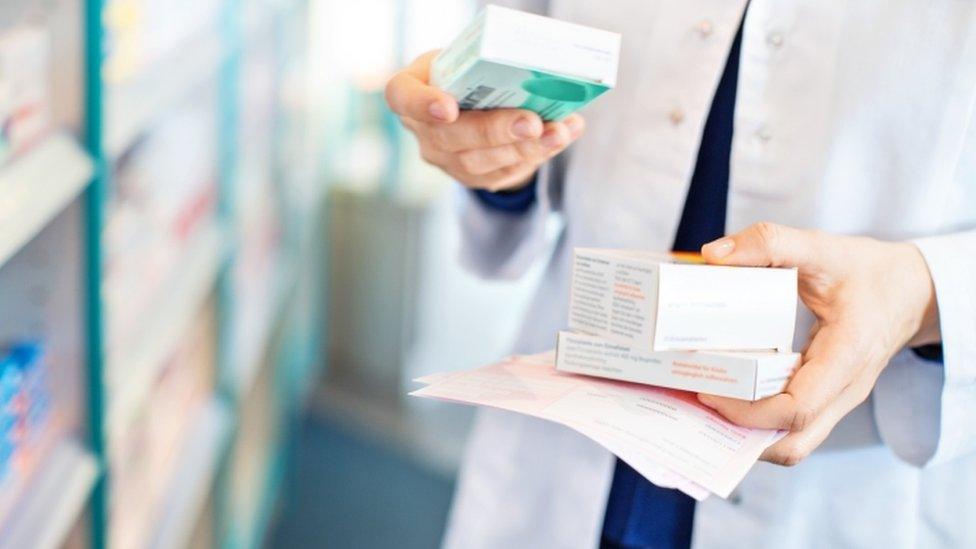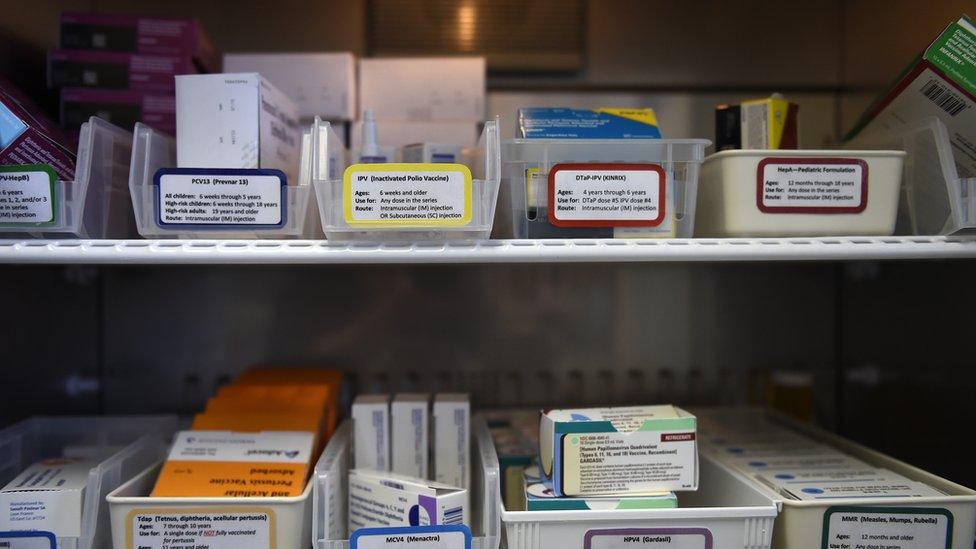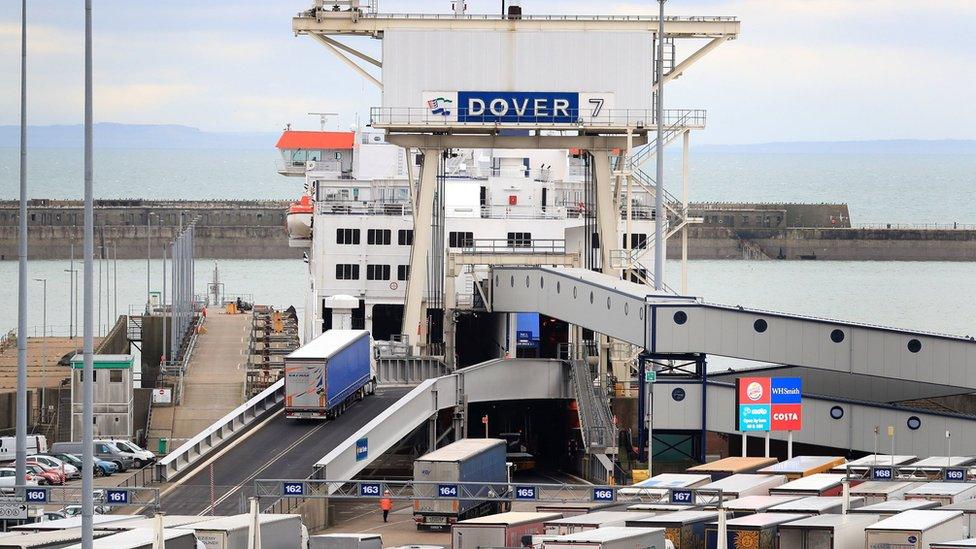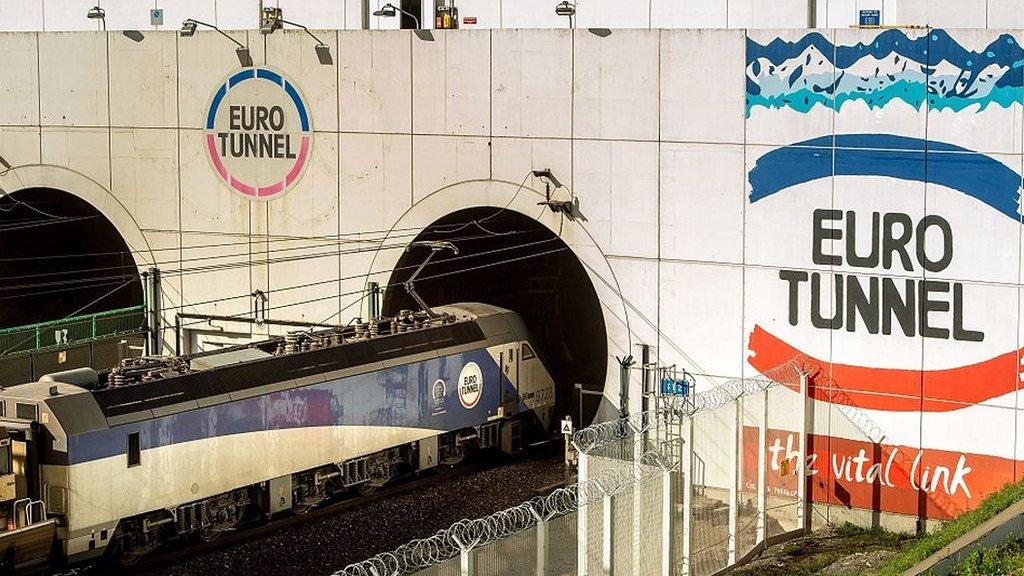UK pays £87m for no-deal Brexit ferry contracts
- Published

The government has awarded £86.6m of contracts to ferry companies to transport medicines in the event of a no-deal Brexit.
Brittany Ferries, DFDS, P&O and Stena Line will be able to deliver those supplies from 31 October, it said.
The contracts are aimed at making sure deliveries of vital products continue, if the UK leaves the EU without a deal.
The government was criticised earlier this year after awarding a transport contract to a company with no ferries.
The contracts will be in place for six months so the government is prepared for different Brexit scenarios, a spokesperson said.
Should the contracts need to be cancelled, the UK will pay the firms £11.52m. The UK paid £51m to cancel no-deal ferry contracts after the Brexit deadline extension at the end of March.
Transport Secretary Grant Shapps said: "The UK is getting ready to leave the EU on the 31 October and, like any sensible government, we are preparing for all outcomes.
"Our decisive action means freight operators will be ready and waiting to transport vital medicines into the country from the moment we leave."
The firms will operate on routes away from the busiest ports to minimise disruption, the Department for Transport said.
The ferries run between Teesport, Hull, Killingholme, Felixstowe, Harwich, Tilbury, Portsmouth and Poole in the UK and Cherbourg, Caen, Le Havre, Zeebrugge, Hook of Holland, Rotterdam, Europort, and Vlaardingen.
'Patients may die'
Earlier this week, the government established a customs paperwork support unit for medical goods suppliers to help with getting across borders in the event of a no-deal Brexit.
The extra capacity will help drugs firms plan for a no-deal Brexit, the Association of the British Pharmaceutical Industry said.
"This capacity is an important part of our members' preparations," said the industry body's chief executive Mike Thompson.
"Stockpiles are also in place, and some companies have already sourced their own alternative ferry routes."
Earlier this week Dame Sally Davies warned that patients could die should there be medical supplies shortages.
"We cannot guarantee that there will not be shortages, not only in medicines, but technology and gadgets," she told BBC Radio 4's Today programme. "There may be deaths, we can't guarantee there won't."
In February the government scrapped a ferry contract with Seaborne Freight, which had no ships, after the Irish company backing the deal pulled out.
- Published26 July 2019

- Published7 July 2019

- Published29 June 2019

- Published1 March 2019
